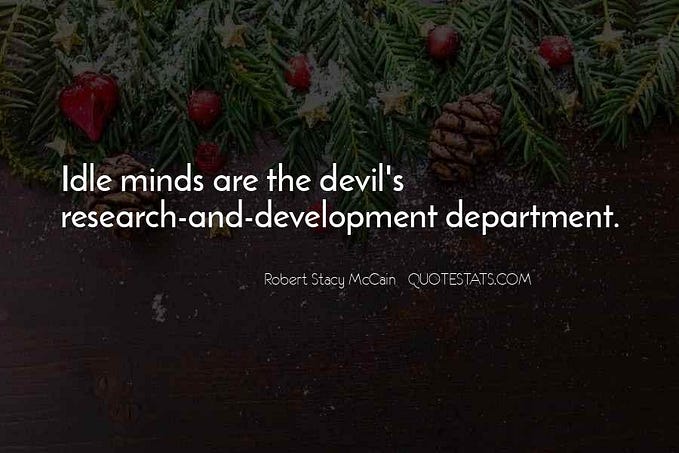Why Are Smart Fools More Fool Than Simple Fools?
“A lot of people with high IQ are especially susceptible to foolishness because they think they’re not — they are smart fools.”
Robert J. Sternberg (American psychologist and psychometrician.)
These smart fools mostly include a substantial number of influential and powerful people in any society. Politicians, especially those suffering from the diseases like narcissism and/or hubris (exaggerated pride or self confidence creating a sense of grandiosity) are no exception. One example is that of a Pakistani cricketer turned politician who leaves no opportunity to condemn and taunt his opponents for the same faults he himself is also suffering from. Thus they are more dangerous than ordinary simpletons as they (as well as their followers) believe in their own foolishness.
Regardless, according to “Institute in Basic Life Principles,” in the Old Testament, the word fool is actually a translation of five different Hebrew words that reflect subtle differences in “types” of fools: simple, silly, sensual, scorning, and steadfast fools. “Simple Fool” is described as the one who has an over-simplified view of life and fails to recognize the cause-and-effect sequences that affect every area of life, in addition to being dangerously immature and extremely gullible.
However, modern psychology has added another kind of fool to the said list: “Smart Fool.” They are defined as those who have a certain kind of intelligence or formal education but not the kind that can help a society make progress against its biggest challenges. On the contrary, they can even be destructive.
The problem is that most people with degrees/diplomas/certificates (especially from Harvard and Oxford) think that formal, especially western education is the only way to gain knowledge and learning and thus become successful. However it is a wrong perception that learning only comes form schools/colleges or universities. Moreover, the formal educational institutions are places where knowledge is always for sale and thus poor people, who are in majority too, are unable to have access to them. Can we say that this inability to get formal education proves a blessing in disguise?
Nevertheless, we should know that there are a variety of learning methods and we not only learn from books but also from many informal and practical sources including everyday experiences and hands on training or learning by doing/self learning. Hands-on training can be important for people who learn best by doing, rather than sitting in a classroom listening to lectures or reading books. It’s widely recognized that different learning styles exist, and some are more suited for certain individuals than others. And we also can’t say that one learning method is better than others though Practice by doing, a form of “Discover Learning”, is deemed one of the most effective methods of learning and study.
Another problem is that we also often confuse grades and degrees with intelligence but this is not right. We may encounter many so-called graduates from so-called prestigious universities whose behaviour may smack of bad judgement to the extent of foolishness. And, as the saying goes, unfortunately or fortunately, “many go through the University without the University going through them.”
Moreover, according to Sternberg, “without virtues such as prudence/wisdom (the ability to see the many sides of an issue or argument), smart fools can even work toward destructive ends.” In other words, their knowledge (bereft of any core human values, such as spirituality, compassion, honesty, selflessness, self control etc.) proves more harmful than beneficial. Some psychologists also add “Temperance” to the list of core values and see a connection between the lack of this value and sexual harassment scandals of powerful men in government, business, and entertainment.
It is also suggested by some psychologists that Smart fools are susceptible to following toxic leaders, and they are effective at doing the leader’s bidding because of their intelligence. However, they and their toxic leaders flourish but others suffer.
In this context, people ordering to drop nuclear bombs on the two cities of Japan can also be called “smart fools.”

Image credit: https://www.snopes.com/fact-check/elon-musk-education-intelligence-quote/
Regardless, the school-smart or book-smart are not necessarily better than street-smart, especially, if book-smart is also an arrogant person full of him/herself.
And as Anna Matteo (who writes for VOA Learning English) points out, “Book-smart people are well-read. They often know the names of great thinkers, scientists and other famous people in history. They have read classical literature. They know facts and information that many other people don’t. Usually people like book-smarts are good at things like trivia games and crossword puzzles.”
On the other hand, being street smart means you have a good situational understanding and awareness; in simple words, you know what is going on around you. Your solutions are practical, resulting from ‘real-life’ experience.
Thus as Anna further opines, being book-smart is not everything. And, sometimes, even very educated are not so smart when it comes to life skills and people skills.
That is why Sternberg, who also argues that there are multiple forms of intelligence, suggests that basic intelligence needs to be combined with practical intelligence (common sense) in order to prevent people from becoming “smart fools.”
Here is also a story that proves this in a very interesting and convincing manner:
A Scholar And A Boatman
Although there are many version of this story but message is the same as we have already concluded that being book-smart is not necessarily being intelligent or master of everything.
Here is one popular version.
“There was a poor boatman in a village. He was illiterate. He used to row boat from morning till evening only to meet his both ends meet. It was the beginning of the summer season. There was only one passenger in the boat who was a scholar. The boatman set sail and the boat was advancing smoothly.
The scholar, in order to pass time and impress the boatman, asked the poor soul “Did you read history?” The boatman said, “No Sir.” The scholar told him that without any knowledge of history one-fourth of his life was spoiled. Then he paused for some moments and looked at the beautiful scenery around and asked again whether he had read geography.
As usual, the reply of the boatman was in the negative. This time the scholar said that one half of the boatman’s life was spoiled. There was again silence for some time.
It was afternoon and weather was apparently pleasant. The chattering scholar again broke the silence and asked the boatman, “Do you know anything about science?” The reply was again in the negative. The scholar said to him that his life was of no use. Three-fourths of his life were spoiled. Though the boatman felt embarrassed, but remained silent.

All of a sudden the sky became overcast with dark clouds. The Nor’wester ( a wind that is known in India as “Kalbaishaki” and causes huge destruction every year)began to blow.
The scholar was very much frightened. Eventually, the ‘Nor’wester’ became fierce and violent. Now it was the boatman turn who the scholar with due respect, “Sir, do you know how to swim?”
The scholar replied in the negative in a pitiful voice. The boatman said, “The boat is going to sink. Now I see, the whole of your life is spoiled. Your bookish knowledge is of no use.”
Following is also another version of the story:
“A scholar of language and grammar undertook a journey. A river had to be crossed. As was the custom in those days, the scholar hired the boat of a waiting ferryman who took people across the river.
During the journey, the scholar asked the ferryman, with obvious pride and mockery, if he knew anything about grammar and the rules of language.
The ferryman simply replied, “I don’t.”
“Alas!” retorted the rude scholar of grammar, “You have wasted half of your life.”
At this, the sailor was terribly hurt and aggrieved. But he kept quiet. Suddenly the boat was extremely nervous in the high waves and gushing water. “Do you know how to swim, learned Sir?” asked the sailor.
“No!” said the scholar.
The ferryman remarked, “Alas! You have wasted your whole life for the boat is sure to capsize in a few minutes.”
Lesson(s)
- Pride hath a great fall
- Knowledge in one branch is not enough to be proud about.
- True knowledge makes us humble and not arrogant.
- The book smart confuse pretense with reality, and only learn of the difference when it is too late.
- Book smart without practical experiences are fools and mostly full of themselves.
Note: If you found this article useful/sensible, you can support me by buying me a coffee. All you have to do is to click the link below and follow the steps:
Thanks
References:
ii) https://www.engexercise.com/2022/07/a-scholar-and-boatman-completing-story.html








